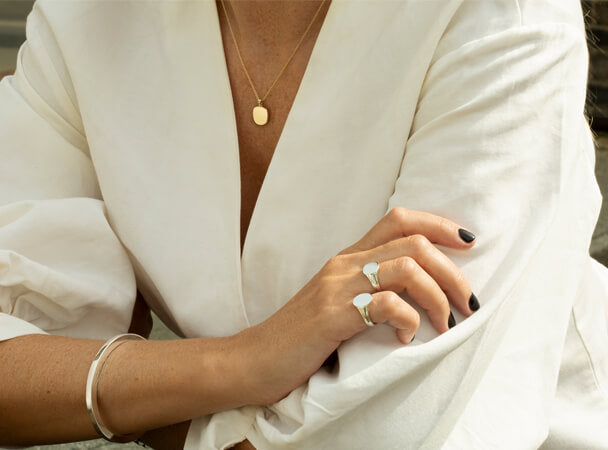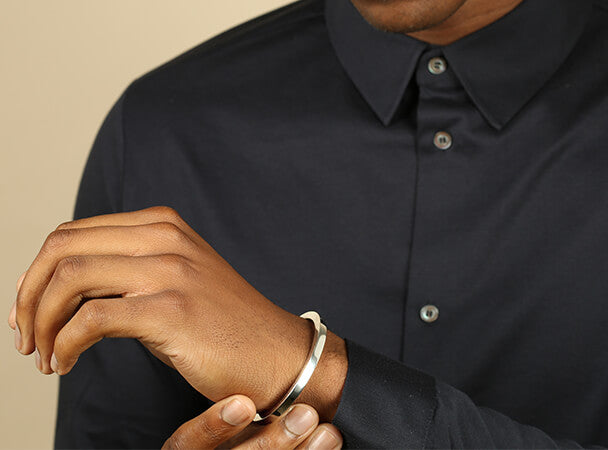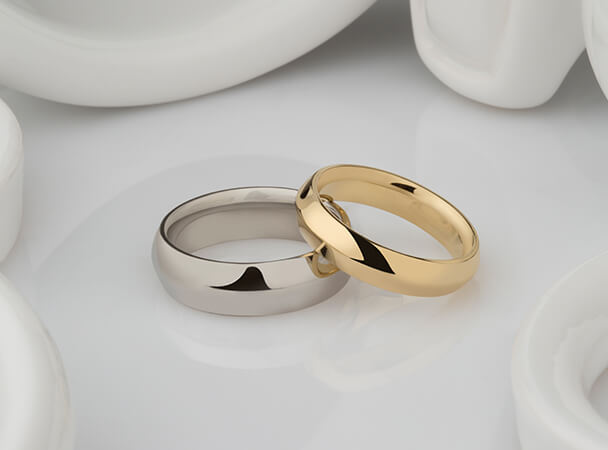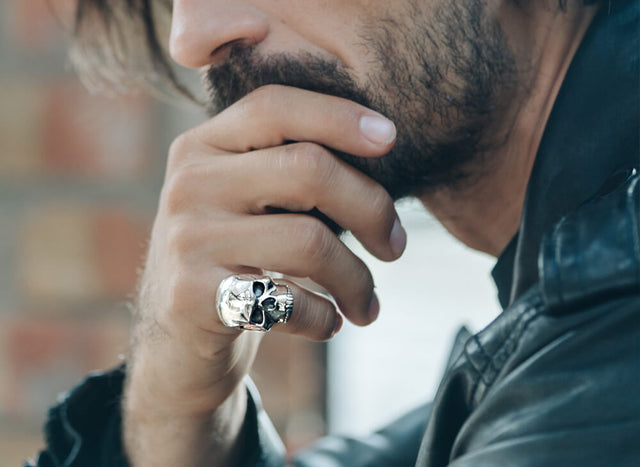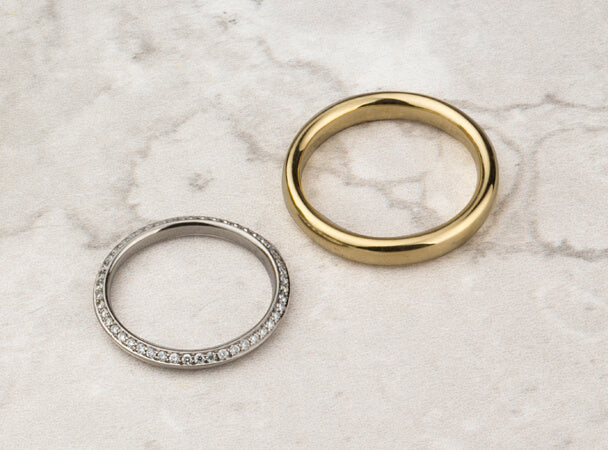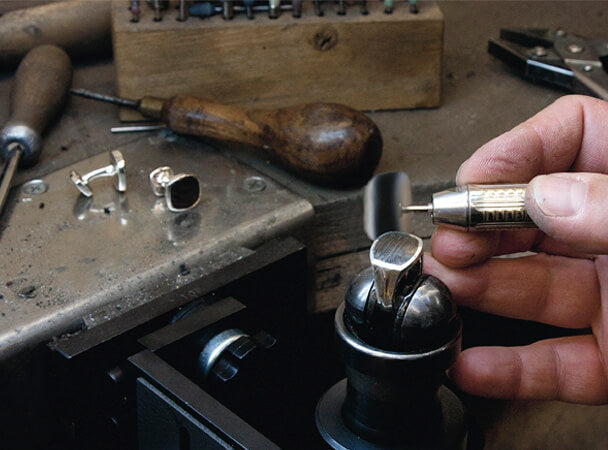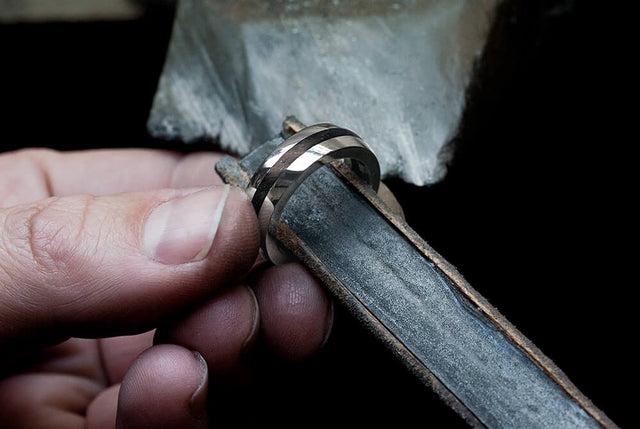Why we need to talk about sustainability and traceability in the jewellery industry

Stephen Einhorn London Jewellery Workshop
When you buy an avocado do you look on the packaging to see where it has come from? Do you try to buy vegetables in season? Do you avoid some high street clothing shops where the cost of a t shirt is less than the cost of the material to make it?
There is a certain level of accountability in both food and fashion, helping us the consumer to make more ethical choices. You can spend more and buy organic food, you can support your local greengrocer or farm delivery service, buy better quality, handmade clothing. Because a lot of these products that you buy are labelled ‘made in’ or ‘grown in’, we have a certain amount of information about the provenance of these items, and therefore some information about how they came to be in your hands.
Labelling on jewellery is not the same, yet the same issues apply, and the shops you buy from, whether online or in person, should be able to answer some basic questions about the provenance and conditions in which a piece was made. Just as with choosing to buy decent quality food, not sprayed with chemicals, and clothes that are stitched by well paid adult labourers, we consumers have power, but we also have responsibility. By making sure you know what you are buying, you can hold the industry to account, and enjoy your piece of jewellery that much more.
Here’s our handy guide on what questions to ask when buying jewellery to help you to make informed decisions.

Where do your diamonds come from?
Where do your diamonds come from?
It’s really important that all jewellers know how to answer this question.
Stephen Einhorn only uses conflict free diamonds which have come through the Kimberley process. These are diamonds which have been placed in tamper proof containers and certified by this United Nations process, protecting the diamond trade from Blood Diamonds. All of our diamonds are certified which means we can tell you where they were cut, as well as all of the technical details about their quality, (the 4Cs of colour, cut, clarity and carat weight).
Can you tell me where the diamond in my ring came from?
This is a slightly different question to where all of the stones are from. Jewellers have been known to stretch the truth slightly and tell customers that the place of origin will be on their diamond certificate. This isn’t true. Stones are sorted into containers with similarly sized stones before being shipped to a cutting centre, where they will be mixed with other, similarly sized stones from other countries. The centre is what will be shown on your certificate. And as far as we are aware there aren’t any diamond mines in Antwerp… Jewellers should be able to explain this to you, and assure you that all their diamonds are Kimberley certified.
If you really want to know the provenance of your diamond and it’s important to you, it’s possible to buy Canadian diamonds. The mining conditions are more controlled because they are mined there and the diamonds are also cut in Canada. The choice as the customer is yours.
Where do your precious stones come from?
There is no ratified treaty for the certification of other stones besides diamonds, but jewellers should be able to talk to you about which countries they do and do not accept stones from and how well they trust their stone dealers. Here at Stephen Einhorn we have been using the same dealers for years who adhere to our own ethical codes about the provenance of stones. We do not buy stones from areas of conflict, where the sale of stones is used to destabilise legitimate governments, or to fund the sales of arms. As the geopolitical climate changes so often, this means keeping abreast of current affairs and keeping in constant contact with our trusted dealers. We have long avoided Burmese rubies, for example, whilst the country was controlled by the military Junta. It is no longer, but we still do not buy stones from there after the treatment of the Rohingya people.

Stephen Einhorn London Jewellery Workshop
Who made my ring?
Do you want a ring handmade by a small, dedicated team, or do you want one made abroad on a large scale, by a huge company? Either is a legitimate choice but you should be aware you are making it.
A lot of larger jewellers no longer make their rings themselves, so any alterations to your piece won’t be made in this country, in fact if it can be altered, it will be sent back to the factory in the country it was made and this will probably take a matter of months. At Stephen Einhorn your ring is handcrafted in our London workshop, meaning if it needs to be re-sized it will be done by the same team who made it. They will know your piece and will give you the best and most personal service. And if you want to shake the hand of the jeweller who made your piece, well, that can be arranged too.
Do you use recycled and reclaimed precious metals?
All metals had to be mined originally (even if it was as far back as the 17th century) but using re-claimed and recycled metals means less environmental impact and less waste. Reduce, reuse, recycle is just as relevant in the jewellery industry as it is in every other walk of life. Here at Stephen Einhorn we use 100% recycled gold, platinum and palladium. We believe in all this, it’s part of who we are.

Stephen Einhorn Bespoke Flower & Vine Engagement Ring In 18ct Rose Gold, Diamonds & Emeralds
Do you use Fairtrade Gold?
This is really the Fairtrade tea question for jewellery. Do you buy Fairtrade or ordinary and don’t worry about the provenance? Whilst all of our gold is recycled (so you can be sure of minimising its environmental impact) we feel that you as the consumer should have the choice as to whether or not you feel able to purchase Fairtrade Gold.
We all know that Fairtrade is a bit more expensive, and rightly so, and we understand it is not a choice all customers are able to make. However, we want to be able to offer that choice, and are one of a small number of jewellers who can make our fine jewellery in certified Fairtrade Gold.
What is your repair service like?
Any reputable jeweller should be able to repair and maintain the jewellery that you buy from them. We offer jewellery MOTs. We can polish, tighten, size and repair because we know how much a financial and emotional investment your jewellery is, and how important it is to you. You will always be able to rely on us to keep your jewellery in tip top condition.

What is your packaging made of?
What is your packaging made of?
It’s all well and good making sure of the provenance of your beautiful piece of jewellery, only for it to be put in a plastic lined box, in a plastic coated (albeit fancy looking) bag. At Stephen Einhorn our packaging is just as much a labour of love as the beautiful jewellery that goes in it. (And as a bonus side note, our ring displays are made of wood, rather than plastic, too). This labour of love is a story still being written, however.
In the interests of transparency, we are happy to tell it. Until a year or so ago all of our packaging was made from fully recycled and recyclable embossed cardboard. However, when we redesigned our London showroom we needed to match the packaging to our re-brand, so Stephen and Jane searched for a company who could make beautiful, recyclable boxes. They thought they had cracked it. But when the order arrived they discovered there is a fine layer of plastic coating on the outside of the cardboard. Not wanting to waste the resources already gone into these boxes they kept them, but carried on researching. The next order will use a plant cellulose to coat the cardboard and thus the fully recycled boxes will be born again.

What’s it like to work at Stephen Einhorn?
What is it like to work here?
People talk about working conditions a lot. It seems obvious that a small company is not a sweat shop, and that people are being given proper breaks, but it’s a question always worth asking. Your ring will shine that much brighter if you know it was made by happy hands. Do staff stay for a long time? Do the bosses buy them birthday presents? Are pastries provided at their weekly meetings? Do they get really good coffee? (It’s true that Stephen Einhorn’s London shop is very close to some amazing bakeries but it’s easy to be a thoughtful employer whatever your location).
And most importantly of all, is the company investing in skill and craftsmanship? Not only do we train our gold and silversmiths to the highest standards but it takes months to train our salespeople so that they know the answers to any questions you might throw at them. Go, on, try us.
Is your company committed to sustainable working practices?
This isn’t just about the provenance of the materials, it’s the ethos of a company. Any business should have ethical policies in place which are about the health and well-being of both their employees, and the environment. Here we look after both. As well as being a fun, supportive place to work, it is a place where no detail is too small. Lightbulbs are eco, paper is recycled, all cleaning products are ecological and we recycle as much waste as we can.
Ultimately you should know the company you are buying from. You should trust them. If they are prepared to answer your questions, to sit down and have an open conversation about their materials and working practices, then they are a company you want to do business with. So take this list anywhere. And if you come to us, we will happily talk to you all day. Maybe even over a really good cup of tea. Fairtrade, of course.
Shop our men’s and women’s jewellery collections online or instore.
